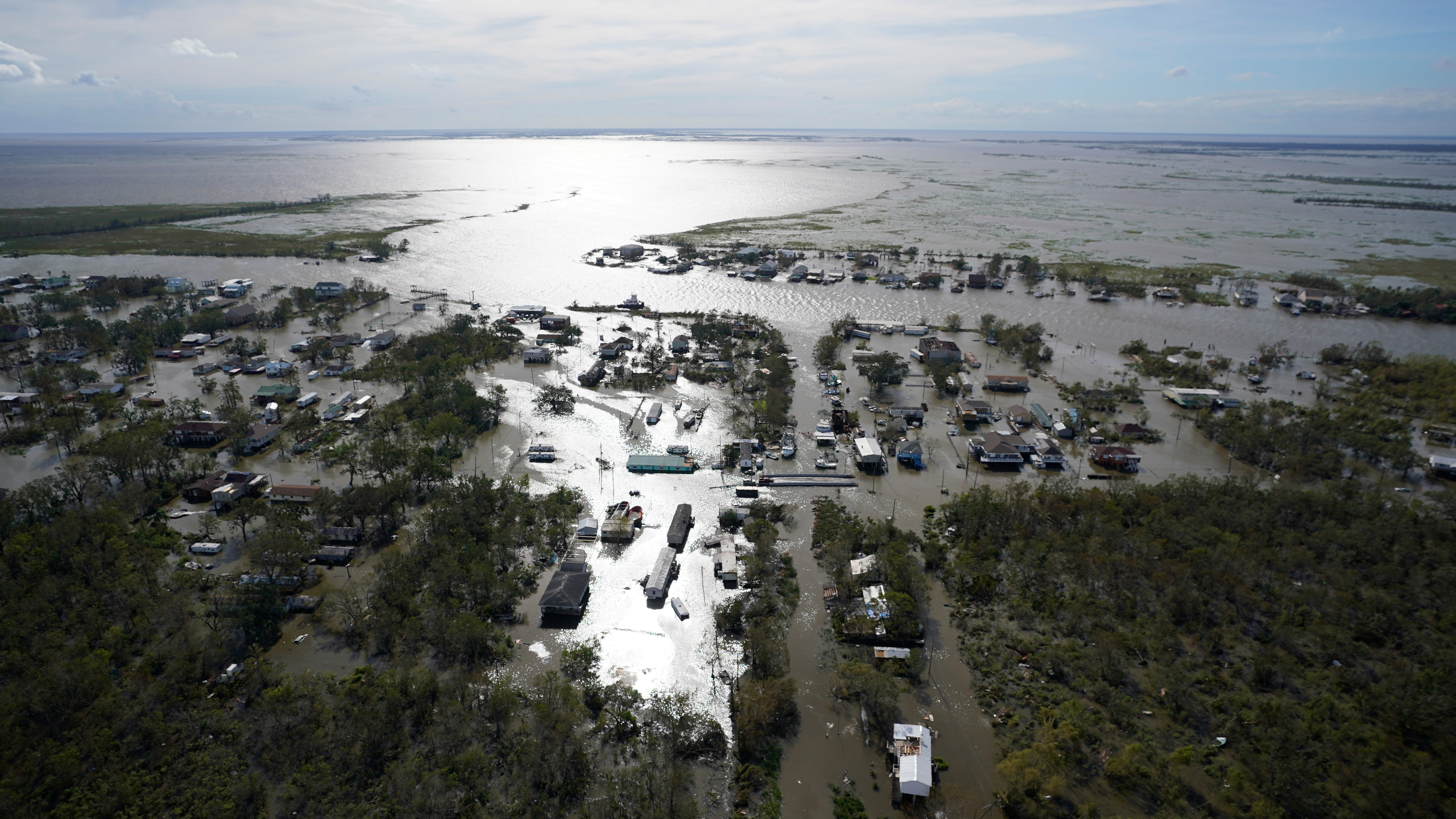Some energy facilities in Gulf gradually inch back to life
Oil companies began gradually to restart some of their refineries in Louisiana, and key fuel pipelines fully reopened, providing hopeful signs that the region’s crucial energy industry can soon recover from the blow of Hurricane Ida

Oil companies began gradually to restart some of their refineries in Louisiana and key fuel pipelines fully reopened Tuesday, providing hopeful signs that the region’s crucial energy industry can soon recover from the blow of Hurricane Ida
Exxon Mobil said crews were starting to resume normal operations at its Hoover platform in the Gulf of Mexico, which managed to avoid storm damage. And the company said its fuel terminal in Baton Rouge, Louisiana, restarted operations Monday.
And in a dose of good news for motorists on the East Coast, Colonial Pipeline said it restored flows late Monday night to two pipelines that run from Houston to Greensboro, North Carolina, after crews had inspected the facilities. The reopening of the conduits, a major source of gasoline and other fuels, will help ease fears of big price spikes for consumers.
In addition, Philips 66 said its Gulf Coast lubricants plant in Sulphur, Louisiana, would reopen Tuesday, though one of its refineries in nearby Belle Chasse, which took on water, remained shut down. Valero said crews were checking its refineries in St. Charles and Meraux, which remained down Tuesday.
Ida ravaged the region’s power grid, leaving all of New Orleans and hundreds of thousands of other Louisiana residents in the dark with no clear timeline on when the electricity would be restored. The refineries that are beginning to restart operations weren’t in the heart of Ida’s path and didn’t lose power, making the task of restarting much more manageable.
Energy and chemical companies throughout the region have been surveying damage since Ida barreled onshore Sunday, bringing ferocious winds and heavy rain. The companies are focusing their efforts on both offshore platforms that are used to pump oil and natural gas from below the Gulf of Mexico and the refineries that turn the crude into finished products.
All told, nine Louisiana refineries, which collectively account for about 13% of the nation's refining capacity, were forced to close, at least temporarily, by the storm, the U.S. Energy Department said Tuesday. The department noted that refinery operators can't restart the plants until the power and other utilities they depend upon are restored. Some companies that said flooding was making it difficult to even reach some of their facilities.
Yet even with the disruptions at many refineries, analysts say they expect no major supply shortages. In part, that is because Gulf Coast inventories of gasoline and other petroleum products were above normal for this time of year, and oil stocks were in line with the five-year average.
On Tuesday, oil prices fell more than 1% before reversing some of that decline. By late morning, benchmark U.S. crude was down a half-percentage point to $68.85 in trading on the New York Mercantile Exchange.
Louisiana communities that were battered by Ida faced a growing danger as they began the immense task of clearing debris and repairing damage from the storm: The possibility of weeks without power in the stifling late-summer heat.
Entergy, Louisiana's main utility company, said a crew of at least 20,000 would take several days to assess the damage in New Orleans and southeast Louisiana caused by the storm.
The Environmental Protection Agency granted emergency fuel waivers for Louisiana and Mississippi through Sept. 16. The move suspends requirements to sell low-volatility gasoline, which is required in the summer to limit the formation of ozone pollution.
___
Koenig reported from Dallas, Wiseman from Washington.
Bookmark popover
Removed from bookmarks